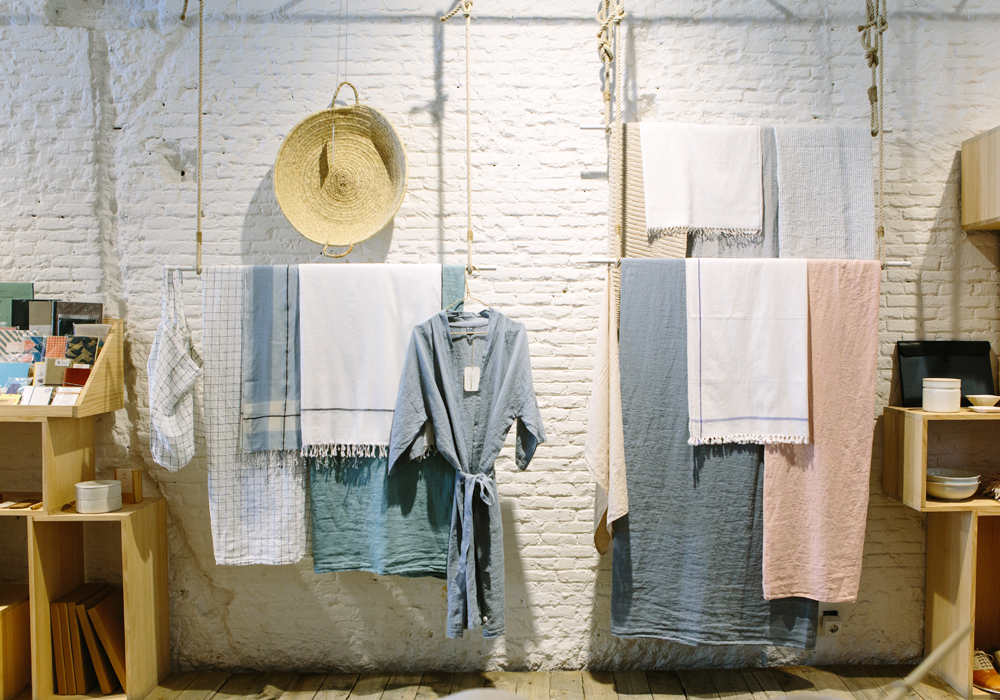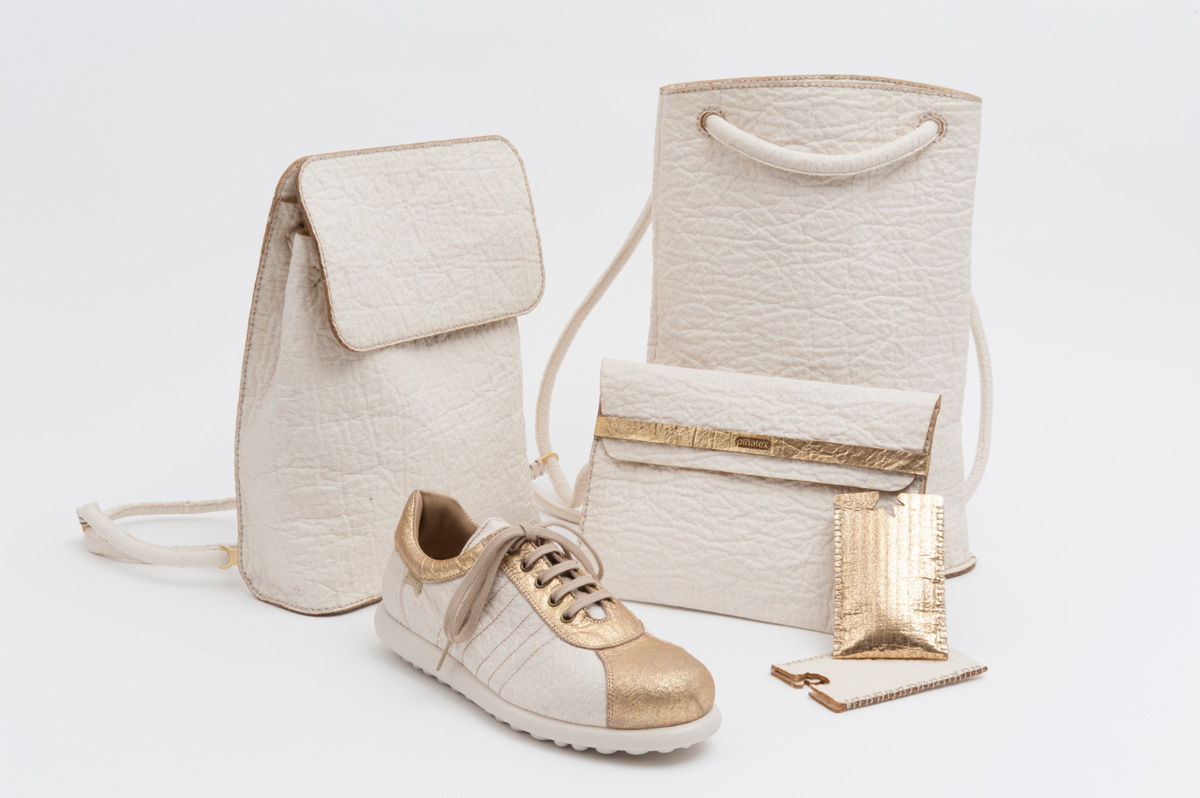The fashion and textile industry has rightfully earned a bad rep in recent years for its role in global pollution and climate change, but not all fabrics are created equal. Some textiles come with some serious sustainability cred.
Things have been different since the Rana Plaza disaster of 2013. When this disaster exposed the unsustainable practices involved in fast fashion, it did more than expose the human rights violations in Bengali factories. It exposed the entire ugly underbelly of the fashion industry including the toxicity of chemicals used in clothes manufacturing. Add-on the release of Cowspiracy in 2014 and the exposure of animal agriculture's impact on the environment and we now see sustainably sourced fabrics moving out of the shadows of their niche market and into the mainstream. Consumers are thinking about what their clothes are made of and how this impacts humans, animals and the environment. While fabrics like wool and silk had always been called environmentally-friendly, a rise in vegan values has seen more plant based fabrics find traction in fashion design.
Animal materials like sheep's wool are known as sustainable because as a natural fibre they last a long time and are biodegradable. However, with livestock now linked to high greenhouse gas emissions, land degradation and water pollution, more consumers are looking to move away from animal products such as wool, fur and leather completely to embrace vegan fabrics instead. Fortunately, the fashion industry is delivering. Below are just a sample of the planet-friendly vegan textiles killing the game right now.
Organic cotton
Organic cotton – distinguished from cotton grown with industrial fertilisers, pesticides and insecticides – is one of the most accessible eco-friendly fabric options due to the popularity of soft and durable cotton garments in the fashion industry. Conventional cotton is considered one of our dirtiest crops, yet cotton is able to grow with low-impact methods and with a little research you can locate organic and fair trade cotton and increase the eco cred of your wardrobe.

Linen
Linen is a luxury fabric famed for its durability and its ability to be farmed using low-impact methods. Linen is sourced from the stalk of flax plants so when grown through traditional techniques consumes very little water or pesticides, leaving a small environmental footprint. The whole flax plant is harvested and used for food or fabric making it a nearly zero waste option. Linen is also naturally biodegradable, so after living a long life, it's able to be composted.
Hemp
Hemp is a fast-regenerating renewable resource, taking just three months to grow (twice the rate of cotton). It can grow in a small space, doesn't require the industrial pesticides of other crops, and is safe to compost. Previously hemp has been harder to source due to government restrictions on cannabis, but we can expect this fabric to increasingly grow in popularity in the future and become more available to consumers.
Bamboo
Bamboo is another fast-regenerating resource. As the fastest growing plant in the world a mature plant grows up to one metre per day in ideal conditions. Great at absorbing greenhouse gases and emitting high levels of oxygen, as a grass it reproduces itself naturally without agrochemicals. When produced without harmful processing chemicals, bamboo is a durable eco-powerhouse leaving little impact on the environment.
Lyocell/Modal/Rayon
These three fabrics while still manufactured by man are made from the pulp of beech, pine or bamboo and are widely considered to be an eco-friendly alternative. They are not completely natural fibres produced directly from a plant, nor are they entirely synthetic like polyester. While some factories manufacturing processes may be less sustainable than they could be, typically these fabrics are natural enough to biodegrade completely. To make sure you're getting fabric that really is completely natural, look out for whether it's a poly blend on the label. The same goes in this case for bamboo.
RPET
One up-and-comer in the sustainable fashion arena is recycled plastic (RPET). PET is the plastic that water bottles are made from, and when processed it can be transformed into a yarn known as polyester, one of the most commonly used fabrics used in fast fashion. When produced from raw materials polyester is destructive and unable to biodegrade, but recycled polyester keeps more plastic out of landfill as it returns the plastic into the circular economy. RPET is best used as a textile for footwear or other items that don't need to be washed. It's recently been found that the most common form of plastic in our oceans is actually microfibres that are coming off our clothes in the wash, so it's best to avoid items you'd wash often that are made from any type of synthetic fibre until better filters have been developed for our washing machines.

Piñatex
Piñatex, or pineapple leather, is a brand-new product developed from the waste of a pineapple tree after harvest of its fruit, saving the resources needed to grow a stand-alone crop. This pineapple leather is completely natural, robust, and flexible with the potential to replace chemically treated cow leather.
Cork Leather
Cork is another renewable and recyclable alternative to conventional leather. Made from the bark of a cork oak, cork is natural, vegan and has the durable properties of being waterproof and scratch resistant, allowing it to last longer but still biodegrade safely.
As consumer interests change, the industry evolves with us. This list is far from exhaustive with new textiles like banana leather, mushroom leather, soysilk, recycled rubber and more arriving on the scene. All are examples of innovation, mindfulness and compassion as we move into a new era of sustainable fashion. As we experience this fashion revolution, there is cause for optimism as supply matches the demand for environmentally-friendly vegan alternatives and new technologies continue to emerge.
Jaclyn McCosker is a conscious lifestyle blogger. Her favourite things include meeting dogs on the street, Bonsoy in her coffee and wearing double denim. You can find her writing on topics of minimalism, veganism and sustainability at jaclynmccosker.com
READ THIS NEXT: Organic vs Conventional Cotton
Images: Unsplash and Ananas anam
